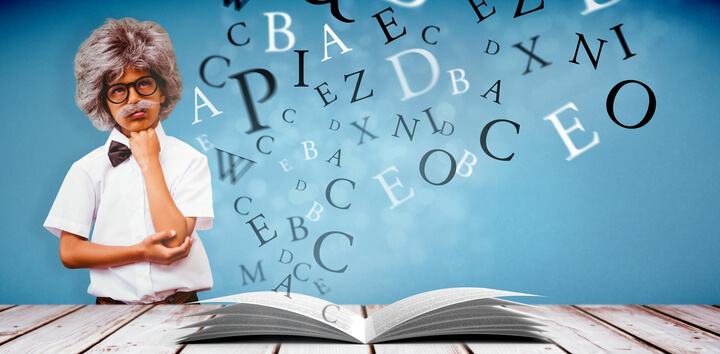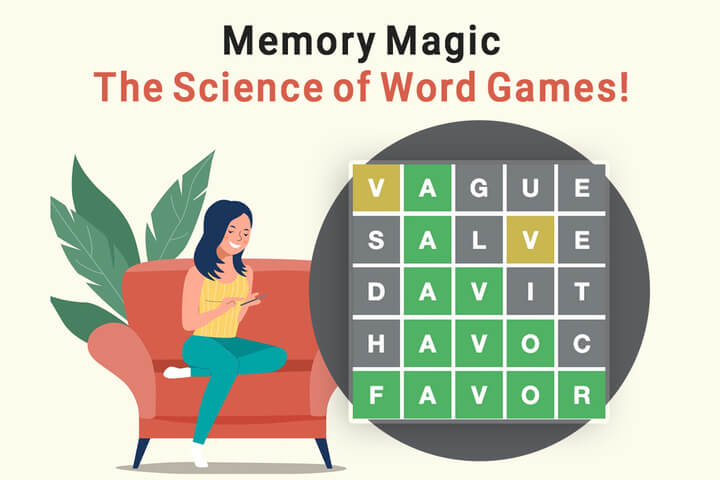Our brains, much like our bodies, need regular exercise to stay strong and sharp. Engaging in mentally stimulating activities can enhance memory, improve focus, and even slow cognitive decline. Among the most effective ways to give your brain a workout? Word games and crossword puzzles!
But what does science say about the impact of these puzzles on brain function? Can they truly improve memory and prevent cognitive decline? In this blog, we’ll dive into the research, explore its benefits, and uncover how you can keep your brain young with word-based challenges!

How Word Games & Crosswords Boost Memory and Brain Function
Science suggests that word-related puzzles stimulate the brain, strengthening neural connections responsible for memory, recall, and problem-solving. Here’s how they help:
1. Strengthening Memory & Recall
Our brains store information in neural networks, and the more we retrieve that information, the stronger those networks become. Word games and crosswords force our brains to recall words, meanings, and associations, strengthening memory.
Scientific Insight:
- A study published in The Journals of Gerontology (2019) found that adults who regularly played word puzzles performed as well as people 10 years younger on memory and reasoning tests.
- Another study by the University of Exeter and King’s College London analyzed data from over 19,000 participants and found that those who frequently engaged in word puzzles had better short-term and long-term memory recall.
Example:
- When solving a crossword puzzle, you must recall past knowledge—whether it’s vocabulary, history, or pop culture. This retrieval process reinforces memory connections.
- In a games like Scrabble or Boggle, you must recall word formations and meanings quickly, which enhances word recall speed.
2. Enhancing Problem-Solving & Cognitive Flexibility
Word puzzles force the brain to think critically and solve problems. Whether it’s finding a missing word or figuring out a tricky crossword clue, these activities help improve cognitive flexibility.
Scientific Insight:
- Research from the University of Edinburgh suggests that people who regularly engage in word-based puzzles demonstrate higher levels of problem-solving skills than those who don’t.
- Neuropsychologists claim that solving crosswords and anagram puzzles strengthens the prefrontal cortex, the part of the brain responsible for decision-making and reasoning.
Example:
- In Wordle, you must analyze letter placement, test different words, and adjust your strategy based on previous guesses—improving pattern recognition and logical thinking.
- In crosswords, clues require lateral thinking, often involving wordplay, synonyms, and knowledge across various subjects.
3. Improving Focus & Concentration
In an era of constant digital distractions, word games and crosswords help train the brain to focus. Unlike passive activities (e.g., watching TV), puzzles require active engagement.
Scientific Insight:
- A study in Frontiers in Psychology found that individuals who engaged in word-based problem-solving had increased levels of sustained attention and concentration over time.
- Neuroscientists suggest that playing word games before important tasks can help improve focus and cognitive endurance.
Example:
- Solving a crossword puzzle requires undivided attention to match clues with the right answers.
- Fast-paced games like Anagrams or Boggle train your brain to stay focused under time pressure.
4. Slowing Cognitive Decline & Reducing the Risk of Dementia
One of the most compelling reasons to play word games and crosswords is their potential role in preventing neurodegenerative diseases like Alzheimer’s and dementia.
Scientific Insight:
- A 2021 study in JAMA Neurology revealed that individuals who engaged in mentally stimulating activities, including word puzzles, had a significantly lower risk of cognitive decline.
- A large-scale study by the Alzheimer’s Association found that puzzle-solving individuals developed dementia symptoms 2.5 years later than those who did not engage in such activities.
Example:
- Elderly individuals who consistently engage in word puzzles often exhibit better cognitive health and memory retention than those who don’t.
- Apps like Lumosity and Elevate, which incorporate word games into brain training, have been linked to higher cognitive resilience in aging individuals.
Word Games vs. Crosswords: Which One Works Best?
Both word games and crosswords contribute significantly to brain health, but they offer slightly different benefits:
| Feature | Word Games (e.g., Scrabble, Wordle) | Crossword Puzzles |
| Memory Boost | ✅ Strong | ✅✅ Stronger |
| Problem-Solving | ✅✅ Stronger | ✅ Moderate |
| Vocabulary Growth | ✅ Moderate | ✅✅ Stronger |
| Speed & Reflexes | ✅✅ Faster Thinking | ✅ Moderate |
| Dementia Prevention | ✅✅ Effective | ✅✅ Effective |
Final Verdict:
For maximum brain benefits, a mix of word games and crossword puzzles is the best approach!
How to Incorporate Word Puzzles into Your Daily Routine
Want to start training your brain today? Here are a few easy ways:
✅ Morning Routine: Start your day with a mini crossword puzzle or a quick game of Wordle.
✅ Break Time Challenge: Instead of scrolling through social media, play a round of Scrabble GO or Wordscapes.
✅ Evening Wind-Down: Relax with a newspaper crossword or an anagram challenge before bed.
✅ Brain-Boosting Apps: Try Elevate, Cash For Titans, or NYT Crossword for daily puzzles tailored to cognitive improvement.
Final Thoughts: Keep Your Brain Young & Sharp!
Whether you prefer crossword puzzles or word games, the science is clear—both are excellent for brain health, memory retention, and mental agility. Engaging in these activities not only strengthens your mind but also makes learning fun!
So next time you pick up a crossword or challenge yourself with a word game, know that you’re doing something great for your brain!
Now, over to you—what’s your favorite word puzzle? Let us know in the comments!
